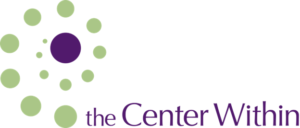Do random acts of kindness touch your heart?

I recently read a heartwarming post on Nextdoor Neighborhood about a random act of kindness. A woman wrote:
“My faith in humanity has been restored! On my way home today, I stopped at Cub Foods. So, as I try to bag my groceries wearing my mittens and with my glasses fogging up, I must have dropped a check that was written out to me from my husband for $1425.00 (for our mortgage payment) which I had already signed. I got home unloaded my groceries and was about to start dinner and the doorbell rang. It was a postman holding a piece of paper, I thought we had a certified letter or something… Well here this amazing gentleman had picked up my check at Cub and actually brought it to our house. I was shocked!!! What a great person and selfless gesture! I wished him all the good wishes I could and babbled on about paying it forward. I grabbed the only cash I had a ran out the door as they were just pulling away. They stopped and a woman hopped out and I told her I wanted to do something for them, and she said no they didn’t want anything. It was only $10 bucks, I gave it to her, she was so sweet!! I will keep them in my prayers. I just wanted to share this kind gesture from someone in our area.”
This week I was grading papers my University of Minnesota students submitted on research articles that enhance wellbeing and the mind-body connection. Kindness is proven to reduce stress and boost moods. Studies produced evidence that people who engage in kindness live longer healthier lives! Here are a few examples.
- In an article on kindness participants randomly assigned to perform prosocial acts for others over a 4-week period showed significant reductions in proinflammatory gene expression profiles (Nelson-Coffey et al., 2017). This article also cited a meta-analysis of five longitudinal cohort studies, Jenkinson et al. (2013) which found that volunteers experienced a 22% reduced mortality risk compared to non-volunteer counterparts. (1)
- Other experimental work suggests that enhanced prosocial behavior (e.g., generativity writing, volunteering) leads to reductions in circulating inflammatory markers and in pro-inflammatory gene expression (Moeini et al., 2020; Schreier et al., 2013).
- Positive emotions enhanced by engaging in loving-kindness meditation builds physical health, indexed in this study as vagal tone. (2)
- Epigenetics is a remarkable phenomenon where genetic expression is able to change throughout the course of a person (or animal’s!) lifetime. An epigenome can wrap inactive genes and make them unreadable while unwinding and making other genes active and readable, and therefore, expressed. While our genetic code is set in stone, the epigenome can adjust gene expression by “covering” and “uncovering” certain genes based on changes in our environment. These environmental influences include, but are not limited to, stress, nutritional intake, prosocial emotions, and cigarette smoking. (3)
 Kindness, sometimes referred to as prosocial behaviors or altruism, is a positive force for our inner and outer world! Prosocial behaviors are those intended to help another. These actions are characterized by a concern for the rights, feelings, and welfare of other people. Prosocial behavior includes a wide range of actions such as helping, sharing, comforting, and cooperating.
Kindness, sometimes referred to as prosocial behaviors or altruism, is a positive force for our inner and outer world! Prosocial behaviors are those intended to help another. These actions are characterized by a concern for the rights, feelings, and welfare of other people. Prosocial behavior includes a wide range of actions such as helping, sharing, comforting, and cooperating.
Kindness includes self-love, receiving kindness graciously, and noticing opportunities to offer kindness.
How do you practice kindness in your life?
1.Fritz, M. M., Walsh, L. C., Cole, S. W., Epel, E., & Lyubomirsky, S. (2020). Kindness and cellular aging: A pre-registered experiment testing the effects of prosocial behavior on telomere length and well-being. Brain, Behavior, & Immunity-Health, 11, 100187.
2. Kok, B., Coffey, K., Cohn, M., Catalino, L., Vacharkulksemsuk, T., Algoe, S., . . . Fredrickson, B. (2013). How Positive Emotions Build Physical Health: Perceived Positive Social Connections Account for the Upward Spiral Between Positive Emotions and Vagal Tone. Psychological Science, 24(7), 1123-1132. Retrieved February 4, 2021, from http://www.jstor.org/stable/23484557
3.Genetic Science Learning Center. (2013) The epigenome at a glance. Retrieved from https://learn.genetics.utah.edu/content/epigenetics/intro/

